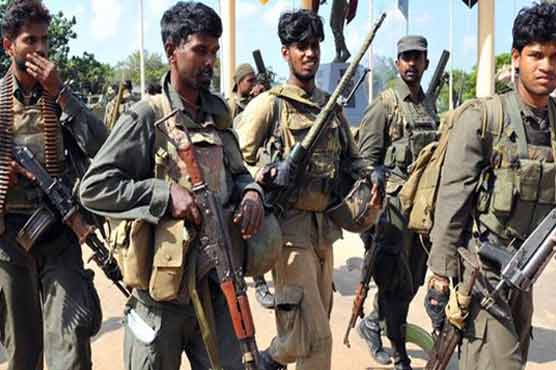UN asks Sri Lanka to probe civil war casualties

The UN says Sri Lanka must launch a probe into 40,000 casualties of civilians during civil war.
GENEVA (AFP) - Sri Lanka must launch an in-depth probe into claims that government troops killed 40,000 civilians during a final offensive against Tamil Tiger rebels in 2009, the UN Human Rights Council said Thursday.
In the face of fierce opposition from Sri Lanka, the UN s top human rights forum passed a resolution pressing Colombo to "credibly investigate widespread allegations of extrajudicial killings and enforced disappearances."
To date, it said, Sri Lanka has failed to "adequately address serious allegations of violations of international human rights law and international humanitarian law".
The United Nations has estimated that some 40,000 people were killed in the final months Sri Lanka s civil war, most of them due to indiscriminate shelling by government forces.
Sri Lanka insists that no civilian was killed by its troops when they launched a final onslaught against separatists fighting for a Tamil homeland.
Lodged by the United States -- whose embassy in Colombo was the scene of protests by pro-government activists Thursday -- the resolution was co-sponsored by over 30 other countries including Canada and European nations.
It underlined concerns about a broad range of continuing abuses in Sri Lanka, including enforced disappearances, extrajudicial killings, torture and violations of freedom of expression.
During Sri Lanka s bloody civil war, which lasted from 1983 to 2009, the Tamil Tiger rebels made suicide bombings their hallmark.
The UN Human Rights Council resolution underlined that states "must ensure that any measure taken to combat terrorism complies with their obligations under international law, in particular international human rights law, international refugee law and international humanitarian law."
It also welcomed Sri Lanka s efforts to rebuild war-damaged infrastructure, clear landmines from the former conflict zone and resettle the majority of people who were displaced during the civil war.
But it noted that "considerable work lies ahead in the areas of justice, reconciliation and the resumption of livelihoods", and that all groups, including minorities, should be able to participate fully.


